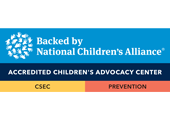Sexual Behavior in Children: Let’s Talk About It
February 10, 2021
All children develop natural behaviors related to their bodies and sexual exploration: asking about and commenting on private parts of the body, being curious about others’ bodies compared to their own, even recognizing that certain parts of the body feel good when touched. Sexual exploration and play are a natural part of child sexual development. However, sometimes childhood sexual behaviors can become concerning, problematic, or even harmful to other children. It is important to better understand the differences between normative sexual development and/or concerning or problematic behavior.
Problematic sexual behavior in children includes behaviors that are beyond the child’s developmental stage. They may involve threats or coercion and/or happen between children of widely different chronological or developmental ages. These behaviors can occur between children in different families or between siblings in the same family. They can sometimes be hurtful or involve the use of body parts or objects in a sexual manner. Problematic sexual behavior can also occur using technology or online communication.
It is important to remember that a child with concerning or problematic sexual behavior is a child first.”
Children develop problematic sexual behavior for a variety of reasons. These behaviors are most often related to some type of anxiety, traumatic experience, or poor impulse control. Children who demonstrate problematic sexual behavior often have other behavioral difficulties, such as impulsiveness, social skill deficits, and difficulty with self-regulation. Problematic sexual behavior has also been linked to factors like exposure to domestic violence, exposure to adult sexual activity or pornography, or inadequate supervision and rules around privacy. Although some children with problematic sexual behavior may have been sexually abused by an adult, it is important to note that this is not true for all.
It can be overwhelming for a parent to ask for help or consultation related to their child’s sexual behavior. There is often a sense of shame and stigma attached to childhood sexual behaviors. It is important to remember that a child with concerning or problematic sexual behavior is a child first. Caregivers seeking help need support and a message of hope from their providers. It is essential for the caregiver to be involved in treatment, and for treatment to include safety planning, the development of sexual behavior rules at an age-appropriate level, as well as other strategies often used in trauma-informed treatment models, such as feelings identification, relaxation techniques, and impulse control strategies. It also vital to note that children who receive treatment for problematic sexual behavior rarely go on to hurt others as adults. Treatment and education are the best prevention tools for a society free from sexual harm and abuse. Children’s Cove is committed to continuing to improve training and educational opportunities related to children’s sexual development and problematic behavior as part of our vision to create a community where children are free from abuse, have a voice that is heard, and where they enjoy healthy, safe, and empowered lives.
Our Mental Health Coordinator Kristine Monteiro is participating in a state-wide training and learning collaborative sponsored by Massachusetts Children’s Alliance (MACA) – and facilitated by the University of Oklahoma related to children ages 7-12 with problematic sexual behavior. MACA is also working with Massachusetts Society for a World Free of Sexual Harm by Youth (MASOC) – which has developed an online training series related to problematic sexual behavior. You can find the training series on the MASOC website at www.masoc.net. The National Child Traumatic Stress Network in partnership with the National Center on the Sexual Behavior of Youth has developed a great resource guide for parents and providers that you can access here.
For further consultation or connection to resources, Kristine can be reached at 508-375-6927 or through email at kristine.monteiro@childrenscove.org






